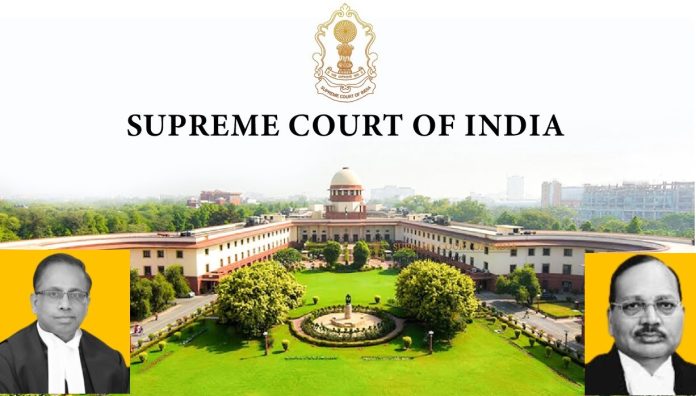New Delhi, March 19: The Bench of Justice Surya Kant and Justice K.V. Viswanathan of the Supreme Court has transferred to itself a Public Interest Litigation (PIL) which was previously pending before the Allahabad High Court. The PIL challenges the validity of the Muslim Personal Law (Shariat) Application Act, 1937, and Section 494 of the Indian Penal Code (IPC).
This transfer comes after a petition filed by the Union of India, requesting the Supreme Court to move the case from the Allahabad High Court to itself. The ground cited was the similarity of issues with another case pending before a Constitution Bench of five judges, titled Ashwini Kumar Upadhyay vs. Union of India. The Supreme Court had issued the notice in the matter on November 11, 2023, and had stayed the proceedings before the High Court.
In the main matter (Writ Petition No. 202 of 2018), the Supreme Court had expressed its intention to set up a fresh five-judge Constitution bench to hear pleas challenging the constitutional validity of polygamy and ‘nikah halala’ among Muslims. Lawyer Ashwini Upadhyay, who filed the PIL, argued that Section 494 of the Indian Penal Code allows polygamy and ‘nikah halala’ and needs to be struck down. Chief Justice DY Chandrachud responded, “I will consider it. At an appropriate stage, I will constitute a constitution bench.”
On August 30 last year, a five-judge bench made the National Human Rights Commission (NHRC), National Commission for Women (NCW), and the National Commission for Minorities (NCM) parties to the PILs and sought their responses. Upadhyay’s PIL seeks a direction to declare polygamy and ‘nikah halala’ unconstitutional and illegal.
Polygamy allows a Muslim man to have four wives, while ‘nikah halala’ deals with the process in which a Muslim woman, who wants to remarry her husband after divorce, has to first marry another person and get a divorce from him after consummation.




